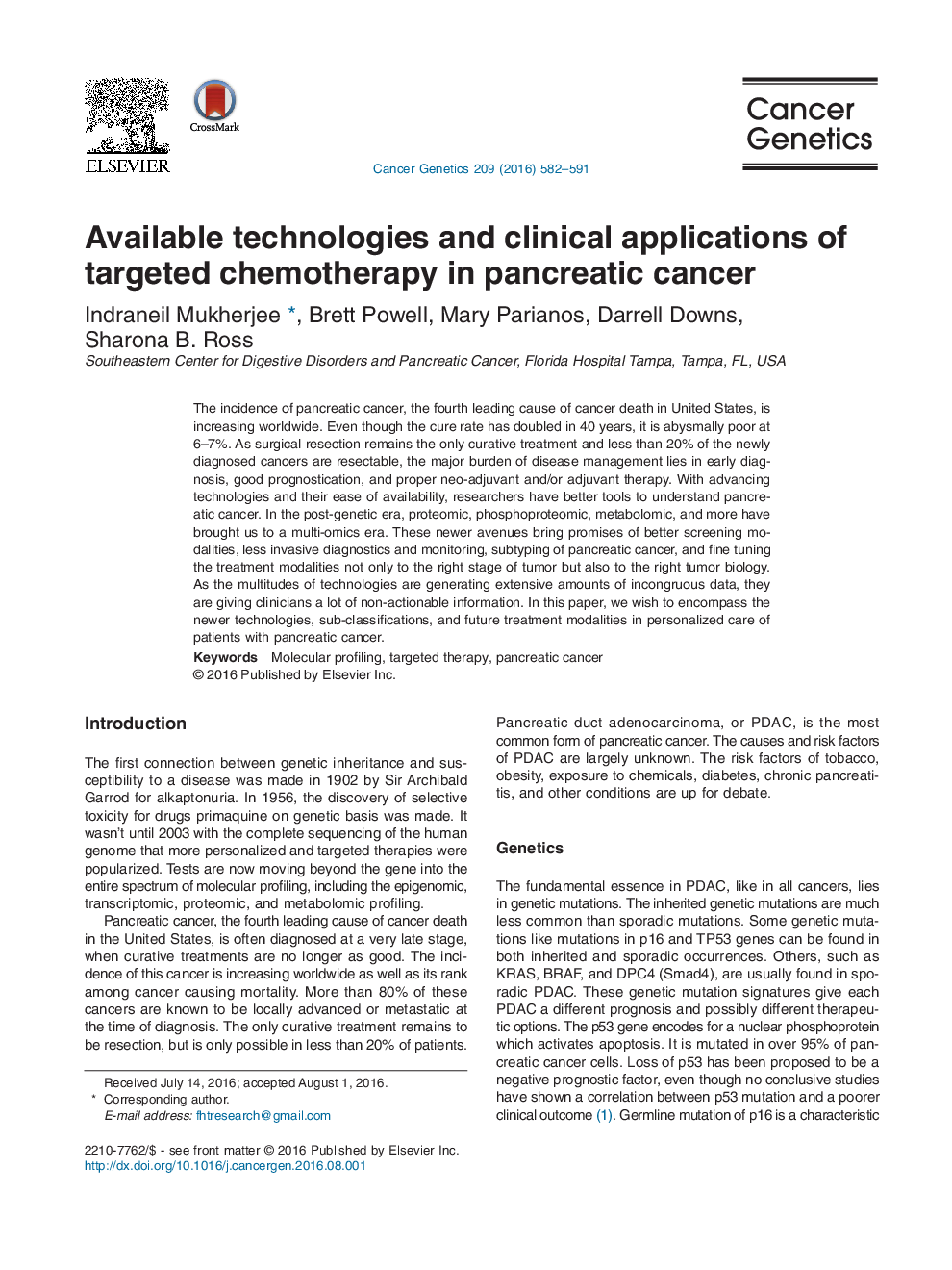| Article ID | Journal | Published Year | Pages | File Type |
|---|---|---|---|---|
| 5525086 | Cancer Genetics | 2016 | 10 Pages |
The incidence of pancreatic cancer, the fourth leading cause of cancer death in United States, is increasing worldwide. Even though the cure rate has doubled in 40 years, it is abysmally poor at 6-7%. As surgical resection remains the only curative treatment and less than 20% of the newly diagnosed cancers are resectable, the major burden of disease management lies in early diagnosis, good prognostication, and proper neo-adjuvant and/or adjuvant therapy. With advancing technologies and their ease of availability, researchers have better tools to understand pancreatic cancer. In the post-genetic era, proteomic, phosphoproteomic, metabolomic, and more have brought us to a multi-omics era. These newer avenues bring promises of better screening modalities, less invasive diagnostics and monitoring, subtyping of pancreatic cancer, and fine tuning the treatment modalities not only to the right stage of tumor but also to the right tumor biology. As the multitudes of technologies are generating extensive amounts of incongruous data, they are giving clinicians a lot of non-actionable information. In this paper, we wish to encompass the newer technologies, sub-classifications, and future treatment modalities in personalized care of patients with pancreatic cancer.
